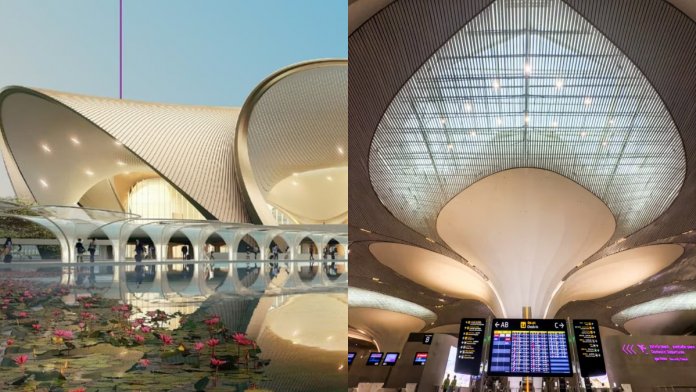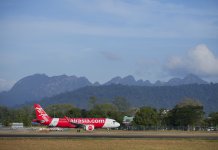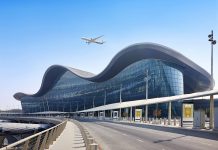Prime Minister Narendra Modi today officially inaugurated Phase 1 of the Navi Mumbai International Airport (NMIA) – a landmark infrastructure project destined to reshape aviation and connectivity across the Mumbai metropolitan region. Built under a Public-Private Partnership (PPP), NMIA is a joint venture between Adani Airports Holdings Ltd (74 %) and CIDCO (26 %).
The new airport, constructed at a cost of ₹19,650 crore, is India’s largest greenfield airport project and is expected to ease congestion at Mumbai’s existing Chhatrapati Shivaji Maharaj International Airport (CSMIA). Its first phase, comprising one runway and a terminal configured to handle up to 20 million passengers annually, is set to commence operations in December 2025.
During the inauguration ceremony, PM Modi described the airport as a symbol of “Viksit Bharat” and spoke of its transformative potential. He noted that the design, inspired by a lotus, blends India’s cultural heritage with modern ambition. He added that the airport will not only enhance passenger connectivity but also boost trade, linking farmers in Maharashtra to markets in the Middle East and Europe.
In his address, Modi reviewed India’s aviation growth, highlighting that the number of operational airports has more than doubled since 2014 – from 74 to over 160 – and underscored the government’s aim to make India a leading MRO (Maintenance, Repair & Overhaul) hub by the end of the decade.
NMIA is located in Ulwe, roughly 37 km from South Mumbai, covering about 1,160 hectares. The airport features signature architectural elements, such as 12 petal-like sculptural columns and 17 mega columns, supporting the terminal’s roof. In its first phase, the airport will operate with 66 check-in counters, 29 aerobridges, 22 self-baggage drop units, and 10 bus boarding gates.
While operations are planned to begin in December, officials have indicated that the airport will be handed over to security agencies for checks, undergo systems testing, and integrate customs and immigration before commercial flights start.
Experts and industry watchers see NMIA as a potential rival to global hubs such as Heathrow and Incheon.The new airport is expected to spur real estate growth across the Mumbai suburbs, with early valuations already seeing upward movement.
With its opening, Mumbai joins elite global cities that host multiple international airports. As phase 1 takes flight, attention now turns to future expansions and ensuring seamless integration with transport, metro, and connectivity infrastructure in coming years.
















